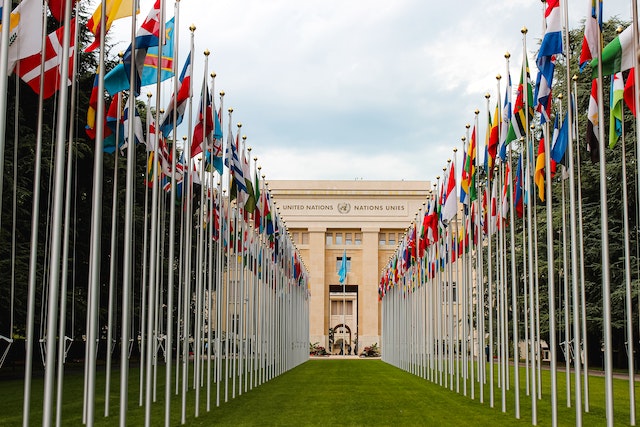It’s been more than six months since Russia invaded Ukraine, prompting a range of tough sanctions intended to roll back the country’s advance. But even though the unprecedented punishment halted Russia’s economic growth, it hasn’t yet had its desired effect – leading some to question the effectiveness of such measures.
Russia’s economy shrank by 4% year-to-year in the second quarter of this year, and the central bank was forced to support the plunging ruble by establishing currency controls. Major corporations pulled out from the country, including Starbucks, which closed 200 of its shops. Another country might have been devastated by the same sanctions, but Russia – being one of the largest economies in the world, and one that is integral to the global energy supply – has made it clear that it can sustain such hits.
“The impact of sanctions on Russia belongs to an altogether different category,” wrote Nicholas Mulder in a June article for the International Monetary Fund’s Finance & Development magazine. “Russia is the world’s 11th largest economy, and its role as the prime commodity exporter among emerging markets gives it a structurally significant position.”
Sanctions impact the marginalized
As a global energy superpower, restrictions against Russia had a reverberatory effect on the energy supply. Though the U.S. isn’t a major purchaser of Russian oil, U.S. residents still felt the sting of high gas prices and rising food costs with Russia being a major wheat exporter. Proving that not only can sanctions be ineffective at times, but the ones that get hurt the most by sanctions is the public. And in some countries, the most marginalized.
When sanctions weaken a government, it has been argued that this can also lead to corruption, as governments and citizens try to find ways, sometimes illicit, to make up for a battered economy. In fact, a study has shown that sanctions in lower-income countries increase the poverty gap as GDP decreases.
Types of sanctions
There are numerous types of sanctions, but the most common are economic sanctions such as asset freezes, travel bans, and financial and trade restrictions. Sanctions are seen as an alternative to military intervention. Wary of igniting a wider – and potentially nuclear – conflict, the United States and its NATO allies ruled out military intervention and instead decided to hinder Russia financially with seizures and liquidation of assets owned by Russian oligarchs.
With the goal to “maintain or restore international peace and security,” the United Nations Security Council has placed sanctions against 14 regimes, related to conflict settlement, nuclear non-proliferation, and counter-terrorism. Individual countries can impose their own sanctions against a country or specific individuals, and collectively through the United Nations.
Currently, the U.S. has sanctions on over 20 countries, including Cuba, Syria, Iran, North Korea, and South Sudan. U.S. economic sanctions are administered and enforced by the Office of Foreign Assets Control of the U.S. Department of Treasury.
Past success and failure of sanctions
Sanctions have proven effective in the past, with success rates estimated to be about 30-50% according to findings by a team at Drexel University’s Global Sanctions Data Base, who probed through about 1,100 instances of sanction on more than 190 countries between 1950 to 2019.
In a 2014 article, the Washington Post, referencing the book, “Economic Sanctions Reconsidered” explored 13 examples of effective sanctions from when the League of Nations began enacting them.
Even the threat of sanctions can be effective, as when the U.S. persuaded South Korea to refrain from purchasing a nuclear fuel reprocessing plant from France, a facility the U.S. was concerned could enable the country to make nuclear weapons.
But sanctions against countries such as Cuba, Sudan, and North Korea have been relatively ineffective as they have not led to regime change or an end to harmful actions, proving that the potency of sanctions isn’t always certain, especially in an increasingly complex and globalized world.











